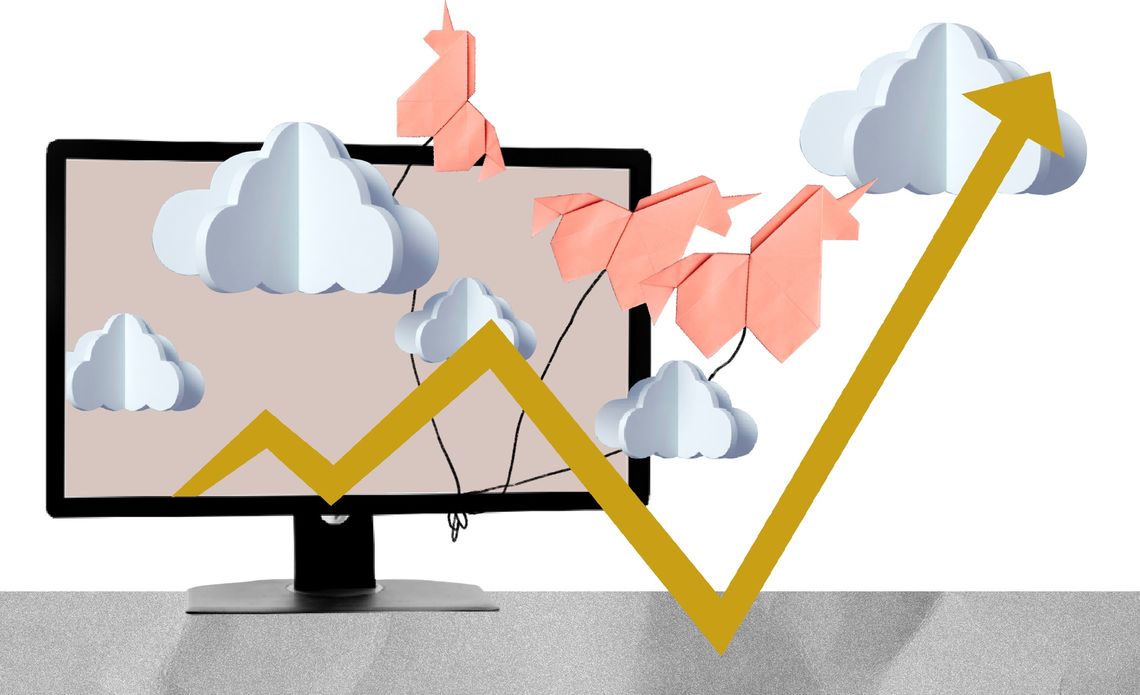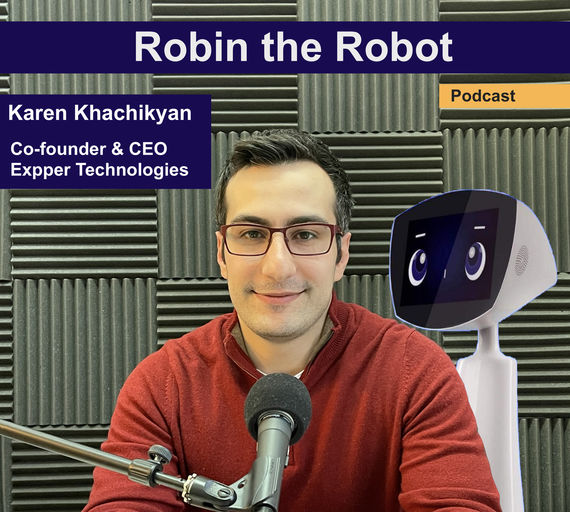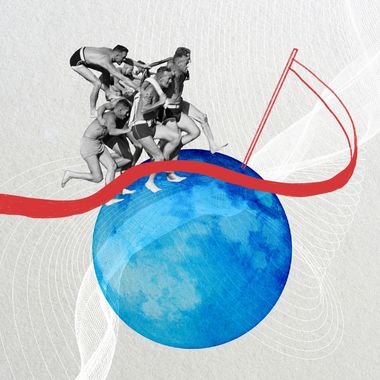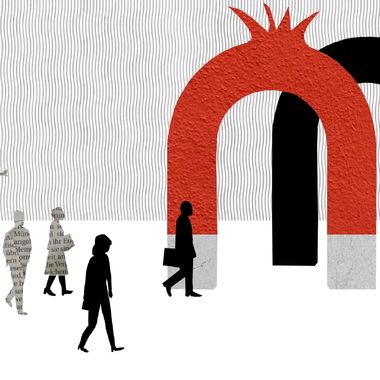
Illustration by Armine Shahbazyan.
Only a few years ago, hearing the word “unicorn” made us all imagine the character we know from fairy tales and cartoons. Today, the mythical creature is also associated with successful startup companies.
A unicorn is a private startup company that has crossed the $1 billion valuation mark, within its first 10 years. The term was first used this way in 2013 by American angel investor Aileen Lee, founder of Cowboy Ventures. Unable to come up with another word to describe how rare a $1 billion startup is, she called them unicorns to drive home the point. The world has been using her term for the past nine years, during which their number has increased to more than 800.
How Are Unicorns Made?
Success does not just fall from the sky. Building and catching a unicorn usually only comes after years of overcoming setbacks and failures.
When Lee coined the term in 2013, about 40% of unicorn companies came from the United States and 25% came from China. In 2021, about 76% of unicorn startups are based in the United States and China.
In a 2013 TechCrunch article, Lee outlined how companies become unicorns. According to the angel investor, only 0.07% of them crossed the $1 billion market capitalization threshold after receiving external financing. Technology-oriented startups were the fastest in approaching the $1 billion benchmark.
Most founders of unicorn startups and experts in the field maintain that there is no clear roadmap to becoming a unicorn, but a few do offer more concrete advice. For example, Rocket DAO, a company that helps startups find investment, has singled out 10 key points that can help increase the chances of becoming a unicorn. They include:
1. Product: It is important what problems the product or service is going to solve in the market, and who the target audience is.
2. Business Model: The startup’s business model should be realistic, logical and have a potential for generating profit.
3. Team: Only professionals should be considered and accepted into the team.
4. Financial Model: Correct modeling must be constructed for the startup, and financial projections made as accurate as possible.
5. PR and marketing: The startup must have a clear strategy and marketing plan.
According to other specialists, diving into an area with exponential growth, such as cryptocurrencies, Augmented Reality (AR) and Virtual Reality (VR) technologies, definitely helps.
According to well-known investor Gary Fowler, it is important that a startup seeking unicorn status brings about global changes to the industry in which it intends to operate. That is, it must change the lives of consumers that are using its services or product, much like Uber and AirBnB did. Uber completely changed the way we order taxis, while AirBnB made the process of searching for a place to stay easier in the tourism industry. Users and customers build up strong emotional ties with such companies because they make their lives easier. And a solid customer base is the first step to profitability.
Picsart, which recently became a unicorn, has already formed this deep emotional connection. In a visual age of photos and videos, it allows people to quickly edit and publish beautiful photos or videos with a few simple actions.
Life After Unicorn Status
Earning the coveted designation is not the end of the journey. In fact, it is just the beginning. When a startup has crossed the $1 billion benchmark, the expectations of both investors and the general ecosystem greatly increase. The pressure mounts and the ecosystem starts to demand that the startup grow faster than, perhaps, they had initially planned. It also increases the likelihood that an initial public offering (IPO) will take place sooner, as shares of the company are listed on an exchange and made accessible to the public.
However, it may help the company to push out its IPO if it is still too early to produce quarterly results that demonstrate sustainable growth. In fact, the IPO itself may never happen at all. Many successful unicorns can still be bought out by larger, more established players.
Naturally, the primary goal of newly-crowned unicorns is typically to establish themselves as a market leader and buy out competitors themselves. A steady source of capital Investment (regardless of its format) is also needed on this journey. Over the years, the terms Decacorn (valued at more than $10 billion) and Hectocorn (valued at more than $100 billion) have been coined for such companies. The road from unicorn to decacorn might take less than three years; however, about 0․000125% of unicorn companies will get there. Far fewer will become a hectocorn. For example, SpaceX (valuation: $74 billion) and Epic Games (valuation: $28.7 billion) are decacorn companies; Google (valuation: $1 trillion) and Microsoft (valuation: $2 trillion) are hectocorns.
Armenia and Its Neighborhood
On August 26, 2021, Picsart, a company with Armenian connections, announced a $130 million investment, which priced the company as a unicorn startup worth $1.5 billion. Picsart is the first unicorn in Armenia.
It is a platform offering photo editing services, which has more than 150 million monthly active users from more than 180 countries around the world. It was founded in 2011, with its headquarters located in San Francisco.
Picsart was founded by three Armenians, Hovhannes Avoyan, Artavazd Mehrabyan and Mikayel Vardanyan. The initial idea came to Avoyan after his daughter had faced online criticism for a drawing she had posted. He built a mobile app to help her. Ten years later, that desire to help his daughter turned into Picsart. The app was originally written in English but is now available in 28 languages. Today, Picsart is one of the most downloaded apps globally with 150 million customers (most of them under the age of 35). It counts 1 billion edits on photos and videos.
Users can download Picsart from the App Store or Google Play Store for free, but $4.66 per month unlocks a premium version with more powerful editing tools. It combines photo editing into a social media network, as users can quickly use their smartphones to take a photo or video, edit it and share it with their friends. The app is used by both amateurs and also professional artists.
ServiceTitan is another Armenian unicorn company founded by Ara Mahdessian and Vahe Kuzoyan. What began as a summer project is now a company responsible for transforming the entire home services industry and has 7,500 clients with 100,000 workers. Annual subscription revenue rose from $100 million (2019) to more than $250 million this year.
In an interview to the LA Times, Mahdessian said, “Our mission from Day One has always been to help all hardworking contractors across all trades, and we want to help all of them reach the level of success they deserve.”
With two unicorns, Armenia is punching above its weight compared to its neighboring countries. Although Iran, Georgia and Azerbaijan have many startup companies, they have not yet scored a unicorn. Turkey has two unicorn startups (Getir and Dream Games), both of which surpassed the threshold in 2021.
The Getir mobile app was founded in 2015 by a team including Nazim Salur. Getir is an "ultrafast" delivery service for grocery items. The company is based in Istanbul but serves other markets as well, including Spain, Berlin, Milan and Amsterdam.
Another Turkish unicorn, Dream Games, was founded in 2019 and also based in Istanbul. Having designed many games, their most popular one is Royal Match, which is among the top 20 grossing games in the U.S., UK and Germany.
To establish and develop a start-up, you need the right environment, a robust ecosystem, the right legal framework, ongoing scientific research, and most importantly, these must be accessible to the general population. The less roadblocks in front of risk-taking professionals, the better.
In Armenia, not all these conditions are met, though human talent has persevered anyway. State funding for scientific research was increased this year. Armenia has also enacted flexible tax legislation for startups: a 0% profit tax and 10% income tax for workers. While there is still more policy work to undertake in order to further improve the environment, there seems to be some magic in Armenia after all.
Հայերեն
Ստարտափ երազանք՝ «Միաեղջյուր»
More from Creative Tech
Can the Armenian IT Sector Compete With the World?
By Suren Danielyan
With the right choices in education, Armenia can build an IT community capable of creating its own secure and reliable systems, which will be beneficial from a business perspective as well as for social institutions, including government and national defense.
The Gituzh Initiative: Why Armenia Needs Science
By Rubina Davtyan
Prioritizing science will pave the way towards economic and strategic development. Formed by industry representatives, the Gituzh initiative is working to increase public awareness and government funding for science development.
Digital Pomegranate and Distrikt: Connecting Tech to Sustainable Living in Gyumri
By Hovsep Markarian
Digital Pomegranate, already into its eighth year, has played an active role in shifting the image of Gyumri from a city of poverty and tragedy to a city with a viable future. Its new project, Distrikt, promises to be the first SDG compatible community in the world.
An Armenian Painter’s Foray Into the Cryptic World of NFTs
By Lilly Torosyan
Masha Keryan collaborated with Armenian AR/VR game development app Arloopa on an experimental project to showcase some of her artwork digitally. The result was their first-ever AR exhibition of NFT pieces and VR Tilt Brush sculptures.
The IT Sector in Armenia Is Forming a Middle Class
By Suren Parsyan
The IT sector in Armenia is a strategic direction for the development of the country thanks to the relatively high level of scientific and educational potential of the population, and also one of the highest paid sectors.
Podcast

Co-founder and CEO of Expper Technologies Karen Khachikyan talks about Robin, the world’s first emotionally intelligent robot his company developed. Used in a number of pediatric units in Armenian and American hospitals, Robin helps children cope with the stress of having to undergo treatment and has even become a trusted member of the medical staff.
Comments
Sergei Lebedev
10/6/2021, 9:49:52 AMHow are those companies Armenian? Both are based in the US









